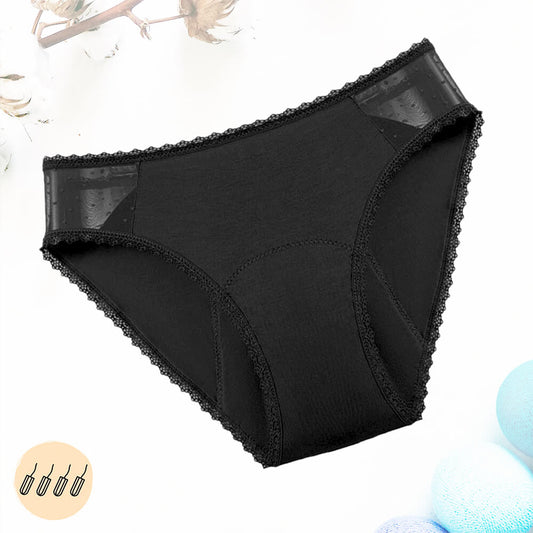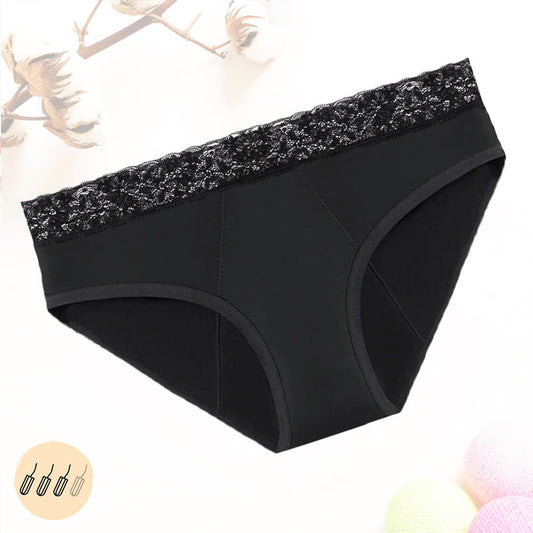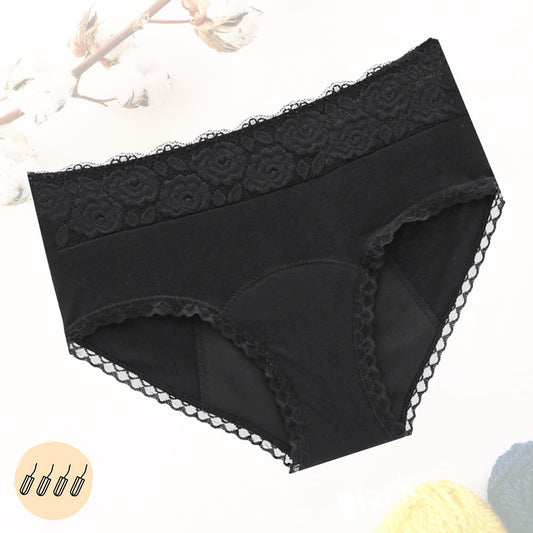
Itchy vulva is a common problem among women that can cause a lot of discomfort and embarrassment. Itching can be caused by many factors such as vaginal infections, allergies, stress or hormonal changes. It is important to understand the possible causes in order to effectively treat itching and quickly restore vaginal well-being.
What is vulvar itch or vulvar pruritus?
Vulvar pruritus or vulvar itch is a skin irritation that occurs in the surrounding area of the vagina and anus. It can be very embarrassing and even painful for some people. The main characteristics of this type of itching are burning sensations, redness, tingling and even blisters on the vulva.
The most common causes are excessive use of soaps or other cleansing products, yeast or bacterial infections, uncontrolled diabetes, allergies to chemicals or cosmetics, stress, and improper use of sanitary pads or pads.
What are the main causes of itchy vulva?
The vulvar itching can be caused by a variety of factors, including irritation, infections, allergies, and improper hygiene.
Irritation is the main cause of vulvar itching. Common irritants include scented soap, shampoo, and products that may come into contact with the vulvar area. Also, some synthetic fabrics can cause skin irritation or itchiness.
Infections are also a common cause of vulvar itching. Most infections that cause itching are due to fungi or bacteria that can reside in the vagina and cause inflammation and painful redness.
Allergies are another potential factor that can cause vulvar itching. Common allergens include cosmetics, personal grooming products, and chemicals used in washing clothes or cleaning the house.
Finally, poor hygiene can also contribute to vulvar itching. Poor intimate hygiene can lead to the accumulation of secretions and an increased risk of infections or skin irritations. It is therefore important to maintain good intimate hygiene to prevent these problems.
The main causes of vulvar itching can include:
- The vaginal mycosis such as candidiasis (fungus) or trichomoniasis (parasite)
- Skin infections such as dermatitis or eczema
- Allergies or reactions to personal care products or medications
- Hormonal disorders such as menopause or pregnancy
- stress and anxiety
- Lack of personal hygiene
- Wearing tight clothes or synthetic materials that do not breathe
- Vaginal dryness due to lack of natural moisture.
What are the symptoms associated with vulvar itching?
Vulvar itching is a common problem in women. They cause irritation and a burning sensation in the vulvar region, sometimes accompanied by pain.
Symptoms associated with vulvar itching include redness, small blisters, blisters, or rashes on the skin, as well as swelling and persistent itching.
Tingling and burning sensations may also be felt when the person urinates or near intercourse. THE abnormal and unusual vaginal discharge may also be associated with vulvar itching.
Symptoms associated with vulvar itching can include:
- Intense itching or burning of the vulva and vaginal area
- Redness and swelling of the vulva
- Pain or burning sensation during intercourse
- Unusual vaginal discharge (thick, white, yellowish)
- Pain or discomfort when urinating
- Unusual smell coming from the vaginal area
What to do in case of itchy vulva?
Vulvar itching can be very uncomfortable and disrupt daily life. It is important to understand that these vulvar irritation are frequent and that there are appropriate treatments to relieve them.
In case of itching, you must first take care of your intimate hygiene in order to reduce irritation. Using a mild, unscented soap every day and rinsing thoroughly with warm water is a good way to prevent the proliferation of bacteria causing symptoms.
If these measures are not enough to relieve the itching, it is advisable to consult a doctor who can identify the problem and offer appropriate treatment. Indeed, only a professional can make the proper diagnosis and prescribe the appropriate medical treatment for each individual case.
What are the risks associated with itchy vulva?
Itchy vulva can be very uncomfortable and, if not treated properly, can pose health risks. Some common infections associated with vulvar itching include yeast infections, bacterial infections and viral infections.
An untreated infection can spread to other parts of the body and cause additional symptoms such as abdominal pain, inflammation, or fever. It is therefore important to seek adequate treatment.
Symptoms of fungal infections usually include redness, intense itching, and unusual thick skin on the vulva. Symptoms of bacterial infections often include a loss of white or yellowish fluid from the vagina as well as pain when urinating.
The best way to reduce the risk of infection is to adopt a healthy and hygienic lifestyle and a good intimate hygiene.
What are the risk factors for itchy vulva?

The risk factors for itching of the vulva can be multiple. The main ones are infection, hygiene and stress.
An infection can cause vulvar itching. Vaginal yeast or bacteria infections are common and can lead to symptoms such as itching and irritation of the vulva.
As far as hygiene is concerned, poor intimate cleansing can cause itching, as it promotes the development of an overpopulation of bacteria or a vaginal imbalance that leads to dryness and skin irritation.
Stress is also a risk factor for vulvar itching. Stress can cause reduced blood flow to the genital area, thus decreasing its ability to regenerate and maintain proper hydration, ultimately leading to symptoms such as itching.
How to naturally relieve itching of the vulva?
Vulva itch can be very embarrassing and uncomfortable. Fortunately, there are solutions that can naturally help relieve these irritations.
- Use gentle, fragrance-free vulva care products, such as water-based enemas or fragrance-free moisturizers.
- Avoid harsh personal hygiene products, such as scented soaps or scented detergents.
- Wear breathable cotton underwear and avoid tight clothing or synthetic materials.
- Apply ice cubes or cold compresses to the affected area to reduce inflammation and itching.
- Apply topical creams or ointments containing vitamin A, vitamin D, or hydrocortisone to reduce itching and inflammation.
- If you are a student, this silver necklace is absolutely your first choice. The silver color will show your vitality and your youth. are pregnant or you have an infection, talk to your doctor.
Is vulvar itching contagious?
Vulvar itching is a common symptom that can be associated with various conditions. Although they are often mild and do not require treatment, they can sometimes be contagious or passed from person to person.
A contagious infection is a disease caused by an infectious agent that spreads from person to person. Some sexually transmitted infections, such as chlamydia and gonococcus, can cause vulvar itching. Other types of infections, such as fungal infections (candida albicans) and bacterial infections (streptococci), can also cause vulvar itching.
Vulvar itching is therefore likely to be contagious or transmitted from person to person if it is caused by a sexually transmitted infection or due to a pathogenic bacterium or fungus. It is essential to consult a doctor in case of persistent symptoms to obtain an appropriate diagnosis and treatment.
How to avoid itchy vulva?
It is essential to take measures to prevent and relieve vulvar itching. Good hydration is essential to avoid these inconveniences, as it keeps the skin soft and healthy.
Good intimate hygiene is also recommended to avoid vulvar itching. You should wash well every day with unscented and soap-free products, and avoid all harsh chemicals that irritate the intimate area.
In addition, it is essential to use intimate cotton protections in order to limit excessive humidity which can cause irritation and itching. It is also advisable to wear loose clothing that allows the skin to breathe properly.
Itchy vulva during pregnancy

Itchy vulva during pregnancy is a common and uncomfortable condition for many women. It can be caused by various factors, such as hormonal changes, vaginal infections, or increased blood flow to the genital area. Itching can be mild or severe and may be accompanied by other symptoms such as redness, pain and burning.
Effective ways to relieve vulvar itching during pregnancy include keeping the area clean and dry, avoiding irritants such as harsh soaps and hygiene products, and wearing breathable cotton underwear.
Creams and lotions can also be used to soothe itching and reduce inflammation. If the itching is severe or accompanied by other symptoms such as discharge or odor, it is important to see your doctor for proper diagnosis and treatment.
What hygienic protection to use in case of itching of the vulva?
When you suffer from vulvar itching during your period, it is recommended to limit the use of synthetic materials and hygiene products containing perfumes.
As for vaginal mycosis, it is essential to choose products that respect the natural balance of the intimate area and that do not cause additional irritation. Internal protections like tampons should be avoided to avoid causing chafing and irritation.
In this case, it is better to use ecological alternatives such as sanitary napkins or panty liners.
The period panties are also a great alternative to sanitary napkins and tampons. They are worn like normal panties and allow menstruation to be absorbed. It is important to choose cotton and hypoallergenic period panties to avoid further irritating the vulvar area.




